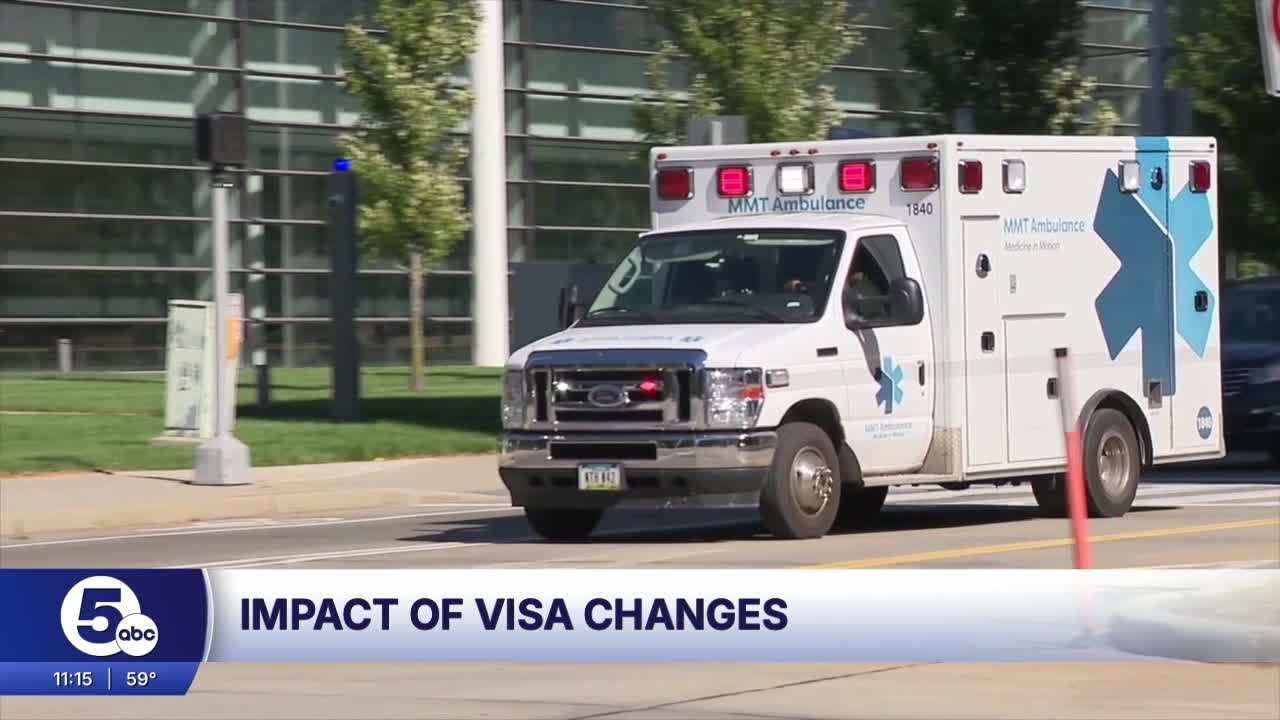CLEVELAND — The H-1B visa program allows U.S. companies to hire skilled foreign workers for specific roles—typically those requiring at least a bachelor's degree. These positions often include engineers, physicians and lawyers.
But a recent move by the Trump administration has sparked concern within the immigration and healthcare sectors: a new $100,000 fee on H-1B visa petitions.
“Every day they're calling me, freaking out," Stacey Cozart Martin with MJB Immigration.
Martin is an immigration attorney who has helped countless employers file H-1B visa applications. But panic set in among her clients—especially in the healthcare industry—after a major change to H-1B regulations.
“She's like, we have 21 docs that are ready to go to them. That's $100,000 a pop for 21 docs. How do you financially?" said Martin.
Previously, filing an H-1B petition cost between $2,500 and $5,000. But on Sept. 19, the Trump administration issued a proclamation requiring a $100,000 fee for each new H-1B petition.
The problem? The details remain unclear, such as who must pay the fee and where the money will go.
“The proclamation doesn't clarify, so it's very difficult for employers to fiscally budget for next year's 2026 H-1B cycle, because they don't know,” said Martin.
H-1B visas allow U.S. employers to sponsor foreign workers for specialty jobs. These roles typically require a bachelor’s degree or higher.
“Your engineers, lawyers, physicians, those are all H-1B petition," said Martin.
Most companies are subject to a cap and must go through a lottery system for H-1B visas. However, hospitals and universities are cap-exempt, meaning they can hire more freely.
“Foreign nationals. I think the last time I looked, make up more than 40% of healthcare workers," said Martin.
According to U.S. Citizenship and Immigration Services (USCIS), 3,831 H-1B petitions have been approved in Ohio this year alone. Cleveland Clinic tops the list with 201 approvals, followed by Ohio State University with 161.
“I think employers are going to shy away from sponsoring people for H-1B because no employer has $100,000 to pay per applicant," said Martin.
News 5 reached out to Cleveland Clinic, which said it is still awaiting additional guidance from the federal government.
University Hospitals provided the following statement:
“The newly implemented $100,000 H-1B fee poses a significant challenge for health systems nationwide, as foreign-trained physicians are an essential part of delivering care. At University Hospitals, we plan to continue filing H-1B petitions for foreign-trained physicians and seek exception under the national interest exemption, given the critical role these physicians play in serving our communities. Our priority is to support our physicians and ensure uninterrupted access to care for patients across our system."
However, Senator Bernie Moreno supports the change, arguing that it puts American workers first.
“We want to make certain that these job opportunities are available first to American citizens, that we cannot allow companies to replace American workers with foreign workers that are willing to come to the us and make a lot less money than American workers. Like that's just fundamentally bad public policy," said Morino
But Martin warns the impact won’t just be economic—it’ll be personal.
“When you go see Dr. Patel is not going to be there anymore. When you go to talk to nurse Cindy, and she's been there, she may not be there anymore. Like, this is going to have an impact on your life, whether you think it will or not," said Martin.




